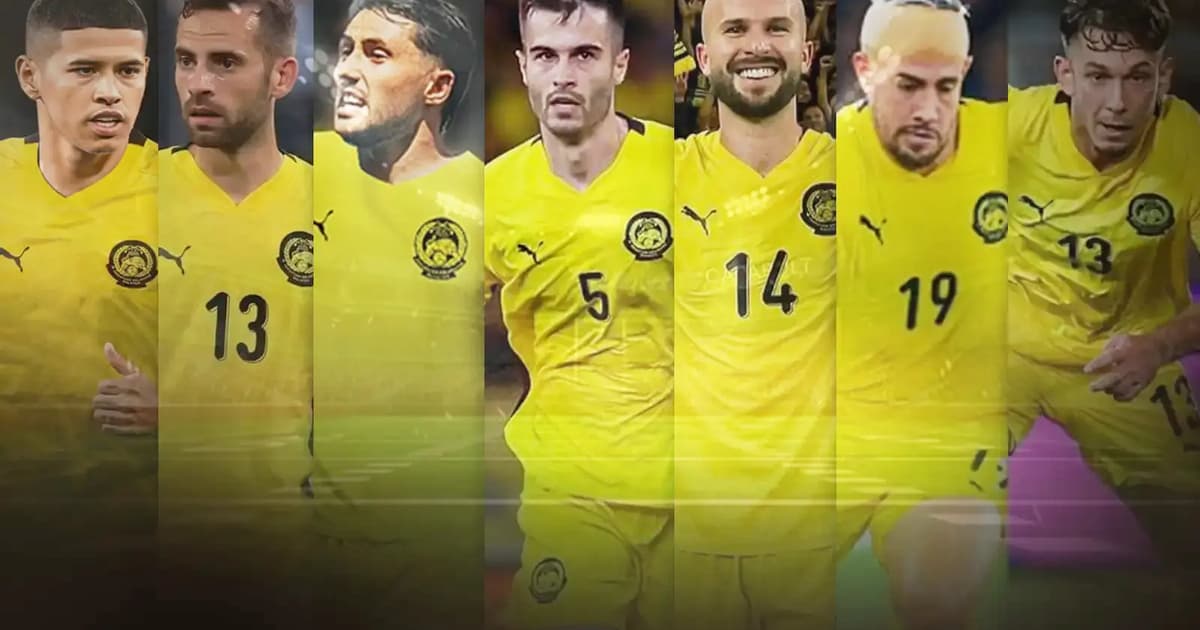
The seven footballers who once wore Malaysia’s colours now live in sporting exile — banned for a year, branded by the Fifa verdict, and carrying a scandal they may never outrun.
When Fifa dismissed Malaysia’s appeal, it drew a hard line under a fraud that had already shamed the nation.
The ruling confirmed 12-month suspensions for the players — Facundo Tomas Garces, Gabriel Felipe Arrocha (Unionistas de Salamanca), Rodrigo Julian Holgado (América de Cali), Imanol Machuca (Velez Sarsfield), Joao Figueiredo, Jon Irazabal, and Hector Hevel (all Johor Darul Ta’zim).
Each was fined 2,000 Swiss francs (RM11,000) and barred from all football-related activities worldwide, a punishment that freezes their careers and reputations.
The unluckiest of them was Machuca. He played only about 20 minutes, a late substitute appearance in Malaysia’s 4–0 win over Vietnam in the 2027 Asian Cup qualifier in June.
That brief outing was the very match that sparked the complaint over ineligible players wearing national colours.
The human cost and moral debt
This is not sympathy journalism. It is moral reportage, asking what happens to people when systems fail.
Behind every forged passport was a person who trusted an institution, who was used, discarded, and shamed.
Their stories remind Malaysia that bureaucracy, deceit, and governance failure do downstream damage to real lives.
Malaysia may not owe them reinstatement, but it owes them recognition: that they were caught in a collapse larger than themselves.
What the nation owes is not amnesty, but accountability: an honest reckoning with the machinery that wrecked them.
Reform, if it is to mean anything, must begin with the victims of its own deceit.
The moment Fifa’s decision landed, assets became liabilities.
It sealed the immediate fate of these men, who now pay the price of a deception that may not have been theirs alone.
The ban is absolute. No club football. No national duty. Contracts frozen; market value gone overnight.
Any team that signs them risks sanction. Sponsors pull out. Insurance collapses. Livelihoods hang by a thread.
Some may still draw base pay under legal clauses. Most will not. Deportation looms if Malaysian status is voided, a bureaucratic humiliation atop sporting exile.
Papers were altered to rewrite nationality. Those documents were issued, endorsed and used.
The men who wore the Harimau Malaya jersey did so under a sovereign process and a national association.
To ask whether each player knew the full truth is necessary, but the harder question is who built the system that made belief plausible.
In football’s economy of reputation, guilt is collective and forgiveness rare. Each of the seven now faces professional ruin.
Even where contracts survive, employability dies — scouts stop calling, agents retreat, offers vanish.
Punishment without proportion
Fifa’s sanction may have targeted administrative fraud, but its reach extends well beyond Kuala Lumpur.
The governing body found falsified documents in eligibility proceedings. The consequence is not just punishment of a roster and federation, it is a purge that radiates through careers and lives.
Players presented with MyKads, passports and naturalisation papers — forms issued by government agencies and filed by FAM — were expected to trust the process.
Most athletes lack the means to verify official records abroad. To question the paperwork would be to question the system that recruited them.
But in sport, trust does not absolve. Fifa’s statutes make clear ignorance is not a defence.
Could these players sue? In theory, yes. In practice, nearly impossible.
Claims of negligence or wrongful misrepresentation by FAM or state agencies would face legal labyrinths and sovereign shields.
The Court of Arbitration for Sport (CAS) may be their only forum, but even victory there won’t erase the stain.
History offers cruel parallels. East German swimmers, Russian athletes in doping regimes, Kenyan runners caught in management-level deceit — all punished for crimes they didn’t design.
The machinery differs — papers, not pills — but the result is identical: careers buried under institutional failure.
The reckoning ahead
Investigations continue. Fifa’s ruling is final at that level; FAM and the players have limited legal recourse.
Domestic probes and parliamentary scrutiny may follow. Crucially, guilt or innocence of individual players has not been established in court.
The record shows forgery and regulatory collapse, not necessarily personal criminal intent. That distinction matters.
The players’ downfall should spark more than outrage. It should demand a national reckoning — of money spent, signatures made, and systems failed.
Reform cannot be another ritual of committees. It must be a full accounting, compelled by Parliament and public will.
Because corruption doesn’t just taint institutions, it destroys people.
If Malaysia is to recover from this shame, it must treat those wrecked by it with fairness, even as it prosecutes the truth. Their ruin should remind us why transparency matters.
The views expressed are those of the writer and do not necessarily reflect those of FMT.






